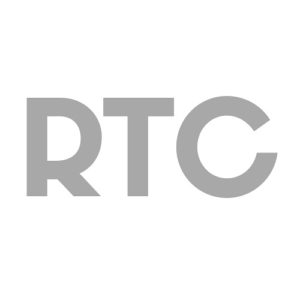
Know Your Blogger Series

In my writing, I try to break concepts down as simply as possible. To provide some personal anecdotes that relate to the topic, but to show that I too may have struggled with something or tips that helped me. Certainly, it can be more challenging and even easier for others as we all have some advantages, privileges, and disadvantages. But my goal was to hopefully inspire others to learn and realize personal finance and investing is not as challenging as you may think it is.
Check out our Q&A with Invested Wallet here.
During these weekly features, we are hoping to provide a way for you to interact and learn more about different blogs in the personal finance space.
Below, you can read more about the story behind Invested Wallet, learn about the author, and learn personal finance tips from Invested Wallet to help you improve your financial situation.
A big thanks for Invested Wallet for this interview! Now, we will turn it over to the author for this interview.
Tell us about Invested Wallet
-
To help beginners learn more about finances, investing, and making money
-
To build a side business that I could make some extra income from
-
To put my digital marketing and writing skills to the test
What makes you and your blog unique?
What does “being good with your personal finances” mean to you?
What are some habits you practice to keep your personal finances in order?
What are your three articles people should read to get to know you and your message better on your site?
For someone looking to improve their financial situation, what’s your best advice?
In your opinion, what should you do first? Pay down debt, or invest?
What are your favorite personal finance books?
-
I Will Teach You To Be Rich
-
The Millionaire Next Door
-
Your Money Or Your Life
-
The Bogleheads’ Guide to Investing
In your opinion, what’s better? Focusing on increasing your income, or focusing on decreasing your expenses?
If you received a $5,000,000 windfall tomorrow, what would you do with the money?
-
Give some to my parents so they could retire a bit earlier
-
Invest in some real estate properties
-
Add more to the stock market (IRA, Brokerage)
-
Look into other alternative investments (Art, Gold, Wine, etc.)
-
High yield savings account
-
A small portion into a “fun” account, might buy a car or something I’ve always wanted. I’m not against treating yourself if you practice good financial things prior.
-
Give some back to charities
What’s a non-money related interest you have and what do you love about it?
How You Can Contact Invested Wallet for More Information
Thank you for reading this interview, and thank you, Invested Wallet, for providing us with some great personal finance tips!

Know Your Blogger Series

As for the RTC name, it is based on the premise that traditional day jobs are soul-crushing. The work is unfulfilling and the schedules are not flexible. So, “Reverse The Crush” is a metaphor for reversing traditional, soul-crushing, unfulfilling work. Hence why the blog is about financial independence through blogging and investing.
The mission of RTC is to document the journey to financial independence through blogging & investing.
Check out our Q&A with Reverse the Crush here.
During these weekly features, we are hoping to provide a way for you to interact and learn more about different blogs in the personal finance space.
Below, you can read more about the story behind Reverse the Crush, learn about the author, and learn personal finance tips from Reverse the Crush to help you improve your financial situation.
A big thanks for Reverse the Crush for this interview! Now, we will turn it over to the author for this interview.
Tell us about Reverse the Crush
What makes you and your blog unique?
What does “being good with your personal finances” mean to you?
What are some habits you practice to keep your personal finances in order?
What are your three articles people should read to get to know you and your message better on your site?
For someone looking to improve their financial situation, what’s your best advice?
In your opinion, what should you do first? Pay down debt, or invest?
-
Build money saving habits
-
Compound interest
-
For more flexibility and options
What are your favorite personal finance books?
What is your favorite investment class and why? (stocks, private business, bonds, real estate, crypto, precious metals, etc.)
If you received a $5,000,000 windfall tomorrow, what would you do with the money?
Why do you believe learning about money and caring about personal finance is important?
How You Can Contact Reverse the Crush for More Information
Thank you for reading this interview, and thank you, Reverse the Crush, for providing us with some great personal finance tips!

Know Your Blogger Series

I wanted to use the blog as a way to chronicle my quest for financial independence and a joyful life. I wanted to show that it is possible to become financially independent as a single income family while living in one of the most expensive cities in the world.
After blogging for a couple of years, I revealed my identity. In case you’re curious, Tawcan is a name that I came up with since the late 90’s which stands for Taiwanese Canadian.
Check out our Q&A with Tawcan here.
During these weekly features, we are hoping to provide a way for you to interact and learn more about different blogs in the personal finance space.
Below, you can read more about the story behind Tawcan, learn about the author, and learn personal finance tips from Tawcan to help you improve your financial situation.
A big thanks for Tawcan for this interview! Now, we will turn it over to the author for this interview.
Tell us about Tawcan
What makes you and your blog unique?
What does “being good with your personal finances” mean to you?
What are some habits you practice to keep your personal finances in order?
What are your three articles people should read to get to know you and your message better on your site?
For someone looking to improve their financial situation, what’s your best advice?
In your opinion, what’s better? Renting a place or buying a house to live?
What are your favorite personal finance books?
What is your favorite investment class and why? (stocks, private business, bonds, real estate, crypto, precious metals, etc.)
If you received a $5,000,000 windfall tomorrow, what would you do with the money?
-
Donate $1 million to a charity of my choice as writing a $1 million cheque and donate to a charity is a big dream of mine.
-
Allocate $1 million to pay off mortgage, travel fund, and money for investing in small businesses.
-
Allocate $1.5 million for investing in a mix of dividend stocks and index ETFs to generate passive income. At a conservative yield of 3%, that would generate about $45,000 a year.
-
Allocate the last $1.5 million would be used for investing as well and I’d donate the distributions every year.
What’s a non-money related interest you have and what do you love about it?
How You Can Contact Tawcan for More Information
Thank you for reading this interview, and thank you, Tawcan, for providing us with some great personal finance tips!

Know Your Blogger Series

We first came up with “All Options Considered” in 2007 and made it our personal family motto. At the time we were working on making a change from individual stock investing to owning rental properties.
Check out our Q&A with All Options Considered here.
During these weekly features, we are hoping to provide a way for you to interact and learn more about different blogs in the personal finance space.
Below, you can read more about the story behind All Options Considered, learn about the author, and learn personal finance tips from All Options Considered to help you improve your financial situation.
A big thanks for All Options Considered for this interview! Now, we will turn it over to the author for this interview.
Tell us about your blog
What makes you and your blog unique?
What does “being good with your personal finances” mean to you?
What are some habits you practice to keep your personal finances in order?
What are your three articles people should read to get to know you and your message better on your site?
For someone looking to improve their financial situation, what’s your best advice?
What is your favorite investment class and why? (stocks, private business, bonds, real estate, crypto, precious metals, etc.)
Do you have any financial mistakes you’d like to share, and how have you grown from these mistakes to improve your personal finances?
If you received a $5,000,000 windfall tomorrow, what would you do with the money?
Why do you believe learning about money and caring about personal finance is important?
What’s a non-money related interest you have and what do you love about it?
How You Can Contact All Options Considered for More Information
Thank you for reading this interview, and thank you, All Options Considered, for providing us with some great personal finance tips!

Know Your Blogger Series

There are other FIRE blogs and other real estate blogs, and we ourselves read and learn from other blogs. However, Costa Rica FIRE follows our personal journey and approach to FIRE.
Check out our Q&A with Costa Rica FIRE here.
During these weekly features, we are hoping to provide a way for you to interact and learn more about different blogs in the personal finance space.
Below, you can read more about the story behind Costa Rica FIRE, learn about the author, and learn personal finance tips from Costa Rica FIRE to help you improve your financial situation.
A big thanks for Costa Rica FIRE for this interview! Now, we will turn it over to the author for this interview.
Tell us about Costa Rica FIRE
What makes you and your blog unique?
What does “being good with your personal finances” mean to you?
What are some habits you practice to keep your personal finances in order?
What are your three articles people should read to get to know you and your message better on your site?
For someone looking to improve their financial situation, what’s your best advice?
In your opinion, what’s better? Renting a place or buying a house to live?
In your opinion, what’s better? Focusing on increasing your income, or focusing on decreasing your expenses?
What is your favorite investment class and why? (stocks, private business, bonds, real estate, crypto, precious metals, etc.)
Do you have any financial mistakes you’d like to share, and how have you grown from these mistakes to improve your personal finances?
Why do you believe learning about money and caring about personal finance is important?
How You Can Contact Costa Rica FIRE for More Information
Thank you for reading this interview, and thank you, Costa Rica FIRE, for providing us with some great personal finance tips!

Know Your Blogger Series

Conventional financial independence wisdom says that leaving a big city is the best way to accelerate your FI progress. But where does that leave the folks who love living in cities? What about those who need to live in one for work or family reasons? Are we all screwed?
Not quite.
I believe that living in cities has pushed me toward FI rather than slowing my progress. That’s why I started writing CityFrugal back in 2018.
Check out our Q&A with CityFrugal here.
During these weekly features, we are hoping to provide a way for you to interact and learn more about different blogs in the personal finance space.
Below, you can read more about the story behind CityFrugal, learn about the author, and learn personal finance tips from CityFrugal to help you improve your financial situation.
A big thanks for CityFrugal for this interview! Now, we will turn it over to the author for this interview.
Tell us about CityFrugal
What makes you and your blog unique?
What does “being good with your personal finances” mean to you?
What are some habits you practice to keep your personal finances in order?
What are your three articles people should read to get to know you and your message better on your site?
For someone looking to improve their financial situation, what’s your best advice?
In your opinion, what’s better? Renting a place or buying a house to live?
What are your favorite personal finance books?
What’s an area of your life which has benefited from improving your personal finances? Have there been any areas of your life which have suffered?
Do you have any financial mistakes you’d like to share, and how have you grown from these mistakes to improve your personal finances?
What’s a non-money related interest you have and what do you love about it?
How You Can Contact CityFrugal for More Information
Thank you for reading this interview, and thank you, CityFrugal, for providing us with some great personal finance tips!

Know Your Blogger Series

The most unique thing about The Little Dollar is the perspective which you will find articles written from, I was never rich, never above poverty line. I was homeless for a while actually. The articles are written from a person who has learned how Personal Finance works when you make $10 an hour in one of top 5 expensive cities in America.
Check out our Q&A with The Little Dollar here.
During these weekly features, we are hoping to provide a way for you to interact and learn more about different blogs in the personal finance space.
Below, you can read more about the story behind The Little Dollar, learn about the author, and learn personal finance tips from The Little Dollar to help you improve your financial situation.
A big thanks for The Little Dollar for this interview! Now, we will turn it over to the author for this interview.
Tell us about The Little Dollar
What makes you and your blog unique?
What does “being good with your personal finances” mean to you?
What are some habits you practice to keep your personal finances in order?
What are your three articles people should read to get to know you and your message better on your site?
For someone looking to improve their financial situation, what’s your best advice?
What are your favorite personal blogs and bloggers you have been inspired by?
What are your favorite personal finance books?
What is your favorite investment class and why? (stocks, private business, bonds, real estate, crypto, precious metals, etc.)
If you received a $5,000,000 windfall tomorrow, what would you do with the money?
What’s a non-money related interest you have and what do you love about it?
How You Can Contact The Little Dollar for More Information
Thank you for reading this interview, and thank you, The Little Dollar, for providing us with some great personal finance tips!

Know Your Blogger Series

Check out our Q&A with A Dime Saved here.
During these weekly features, we are hoping to provide a way for you to interact and learn more about different blogs in the personal finance space.
Below, you can read more about the story behind A Dime Saved, learn about the author, and learn personal finance tips from A Dime Saved to help you improve your financial situation.
A big thanks for A Dime Saved for this interview! Now, we will turn it over to the author for this interview.
Tell Us About A Dime Saved
What makes you and your blog unique?
What does “being good with your personal finances” mean to you?
What are some habits you practice to keep your personal finances in order?
What are your three articles people should read to get to know you and your message better on your site?
For someone looking to improve their financial situation, what’s your best advice?
What’s an area of your life which has benefited from improving your personal finances? Have there been any areas of your life which have suffered?
In your opinion, what’s better? Renting a place or buying a house to live?
In your opinion, what’s better? Focusing on increasing your income, or focusing on decreasing your expenses?
Do you have any financial mistakes you’d like to share, and how have you grown from these mistakes to improve your personal finances?
Why do you believe learning about money and caring about personal finance is important?
How You Can Contact A Dime Saved for More Information
Thank you for reading this interview, and thank you, A Dime Saved, for providing us with some great personal finance tips!

Know Your Blogger Series

My purpose is to give people the freedom that I have achieved! I have SO FAR to go on my journey but I’m confident I’ll get there. To do this I show people what I’ve done and how they could think about incorporating it into their life.
Check out our Q&A with EAT Money here.
During these weekly features, we are hoping to provide a way for you to interact and learn more about different blogs in the personal finance space.
Below, you can read more about the story behind EAT Money, learn about the author, and learn personal finance tips from EAT Money to help you improve your financial situation.
A big thanks for EAT Money for this interview! Now, we will turn it over to the author for this interview.
Tell us about EAT Money
What makes you and your blog unique?
What does “being good with your personal finances” mean to you?
Being good with your personal finances means having a:
- Firm foundation on your income
- Understanding where you spend your money
- Having a financial plan, however simple, to get you where you want to go
What are some habits you practice to keep your personal finances in order?
What are your three articles people should read to get to know you and your message better on your site?
For someone looking to improve their financial situation, what’s your best advice?
What’s an area of your life which has benefited from improving your personal finances? Have there been any areas of your life which have suffered?
In your opinion, what should you do first? Pay down debt, or invest?
In your opinion, what’s better? Focusing on increasing your income, or focusing on decreasing your expenses?
If you received a $5,000,000 windfall tomorrow, what would you do with the money?
I’d imagine some of my first actions after the plan is put together would be:
- Paying off all my debt
- Giving some of it away/setting up a non-profit
- Maxing out all possible retirement accounts
Why do you believe learning about money and caring about personal finance is important?
How You Can Contact EAT Money for More Information
Thank you for reading this interview, and thank you, EAT Money, for providing us with some great personal finance tips!

Know Your Blogger Series

Partners in Fire isn’t just about the upper middle class who has the same options that we do. It’s about all of society – and I want even the poorest among us to be able to achieve financial independence.
Check out our Q&A with Partners in Fire here.
During these weekly features, we are hoping to provide a way for you to interact and learn more about different blogs in the personal finance space.
Below, you can read more about the story behind Partners in Fire, learn about the author, and learn personal finance tips from Partners in Fire to help you improve your financial situation.
A big thanks for Partners in Fire for this interview! Now, we will turn it over to the author for this interview.
Tell us about Partners in Fire
What makes you and your blog unique?
What does “being good with your personal finances” mean to you?
What are some habits you practice to keep your personal finances in order?
What are your three articles people should read to get to know you and your message better on your site?
For someone looking to improve their financial situation, what’s your best advice?
What are your favorite personal blogs and bloggers you have been inspired by?
In your opinion, what should you do first? Pay down debt, or invest?
What is your favorite investment class and why? (stocks, private business, bonds, real estate, crypto, precious metals, etc.)
Do you have any financial mistakes you’d like to share, and how have you grown from these mistakes to improve your personal finances?
What’s a non-money related interest you have and what do you love about it?
How You Can
How You Can Contact Partners in Fire for More Information
Thank you for reading this interview, and thank you, Partners in Fire, for providing us with some great personal finance tips!
